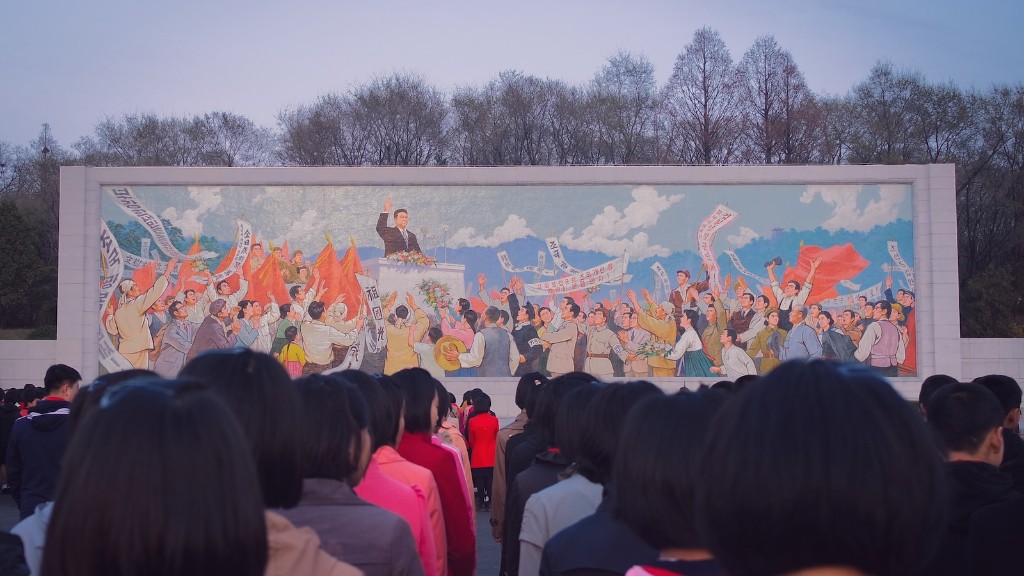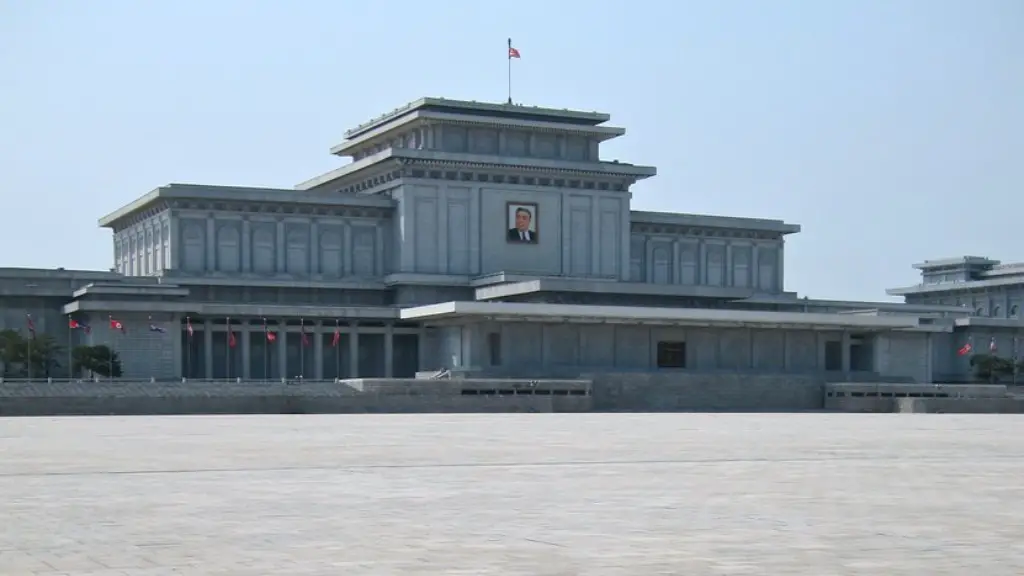Blackouts And Food Rationing
North Korea has long faced severe blackouts, which has put a severe strain on the populace. The population lacks access to modern necessities, such as reliable electricity and running water. This has resulted in long periods of hunger and shortages of basic necessities, leading to widespread food rationing throughout the country. Reports from UN agencies and from North Korean refugees have indicated that the situation remains terminal, with recent reports estimating that around 70% of North Koreans lack access to adequate amounts of food.
Lack Of Civil Liberties
In addition to the lack of basic necessities, North Korea also lacks basic civil liberties, particularly regarding the right to freedom of speech and the right to public protest. It is well known that the North Korean government is one of the world’s most oppressive regimes, one which actively suppresses any form of dissent or public criticism. This includes a heavily censored media and other measures which severely limit the ability of North Koreans to access information from outside sources.
Poor Human Rights Record
North Korea also has a long and awful human rights record. There have been numerous reports of torture, forced labor, and other severe forms of abuse. In addition, the government is known to employ a wide range of repressive measures against its citizens, including the use of public executions, imprisonment without trial, and other extreme forms of punishment.
Inadequate Medical Care
North Koreans also lack access to adequate medical care. Reports indicate that the health care infrastructure remains woefully inadequate, and there is a severe lack of quality medical treatments and medications. As a result, there are high rates of preventable diseases, malnutrition, and other health issues which further impoverish the population.
Limitations On Free Trade
Another factor contributing to North Korea’s lack of prosperity is the severe limitations on free trade. North Korea has long maintained a policy of severe isolationism, which has resulted in the lack of foreign investment, a lack of technology transfer, and a lack of access to new markets. As a result, North Korean industries and businesses remain woefully out of date and unable to compete with their counterparts abroad.
Political Repression
The North Korean political system is also a major factor in the country’s lack of prosperity. The North Korean government has maintained a harsh stance towards any form of dissent, with reports of people being arrested, imprisoned, or even executed for expressing any form of criticism against the regime. This has resulted in a climate of fear, in which the population has little to no ability to speak freely or to challenge their government.
Centralized Economy
Finally, North Korea suffers from a highly centralized economy. In comparison to other countries, North Korea suffers from greater levels of inequality and poverty, as the economic growth which has occurred in the country has primarily been concentrated among the political elite. This has limited economic development, resulting in significant economic disparities and inefficiencies.
Military Expenditure
A significant portion of North Korea’s GDP is devoted to military expenditure, which comes at the expense of the government’s ability to fund social programs or infrastructure improvements. As a result, the population of North Korea is at risk of increased poverty and corruption. In addition, much of the military expenditure is suspected to be linked to the country’s nuclear weapons program, further endangering the region in the event of a regional conflict.
Restrictions On Travel
North Korean citizens are subject to severe restrictions on their freedom of movement, including restrictions on the ability to travel abroad. This restriction has had a particularly harmful impact on North Korean refugees, as they are unable to safely escape the oppressive regime and seek asylum in another country.
Absence Of Free Press
The media in North Korea is heavily censored and there is little to no access to outside sources of information. As a result, the populace remains largely uninformed and unable to make independent decisions, leaving them vulnerable to the whims of the government.
Poor Education System
North Korea’s education system is also severely lacking, with reports indicating that the majority of schools are underfunded and lack basic textbooks and other resources. This has resulted in a generation of North Koreans unable to fully comprehend the concepts of democracy and freedom of expression, leaving them vulnerable to manipulation by the government.
Crippling Sanctions
The United Nations has imposed crippling economic sanctions on North Korea, which has led to a grave economic crisis throughout the country. These sanctions have made it virtually impossible for the government to purchase or receive much needed resources, including food, medicine, and fuel.
Corruption And Graft
Corruption is also rampant in North Korea, with reports indicating that government officials routinely engage in graft and misuse of state funds. This has depleted the nation’s resources and undermined economic development. In addition, the rampant corruption has allowed the government to maintain a stranglehold on the population, further preventing economic growth.



